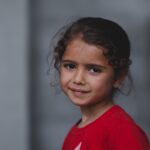
In his debut blog, Filip Kaleta summarises findings from the #BeeWell study, which explored inequalities in adolescent wellbeing based on gender and sexual identity.
[read the full story...]
In his debut blog, Filip Kaleta summarises findings from the #BeeWell study, which explored inequalities in adolescent wellbeing based on gender and sexual identity.
[read the full story...]
Theofanis Kyriacou & Andie Ashdown consider a systematic review of risk and protective factors for trauma transmission among trauma-affected refugees and their non-exposed children.
[read the full story...]
Andie Ashdown and Theophanis Kyriacou consider a qualitative study on sexual minority youth perspectives on minority stress and factors negatively affecting self-esteem.
[read the full story...]
In her debut blog, Annie Stevenson reports on an RCT finding that school-based humanistic counselling reduces psychological distress, but is not cost-effective.
[read the full story...]
Andie Ashdown summarises a systematic review and meta-analysis which finds a relationship between sexual harrassment and eating disorder symptomatology.
[read the full story...]
Lucinda Powell summarises a review which finds little evidence to support the use of peer mentoring in schools to improve mental wellbeing.
[read the full story...]
Julia Badger summarises a study which found that primary aged school children had different reasons for attending counselling to secondary school children.
[read the full story...]
Georgie Parker reviews a mixed-methods study exploring psychiatry trainees understanding, experience of and competence assessing and managing digital risk.
[read the full story...]
Anton Käll summarises a recent RCT of mindfulness training to reduce loneliness and increase social contact.
Ellie Pearce then shares her recent Wellcome Trust funded #ActiveIngredientsMH review, which looked into reducing loneliness as a potential active ingredient in both alleviating and preventing anxiety and depression in young people.
[read the full story...]
Asha Patel and Sal McKeown summarise a Dutch observational study of parents’ praise and children’s self-esteem. The research finds that parents’ inflated praise predicted lower self-esteem in children, and also predicted higher narcissism, but only in children with high self-esteem.
[read the full story...]